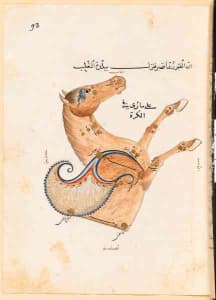Was medieval Islamic culture inhospitable to science?
By Kristopher A. Nelson
in
June 2010
500 words / 2 min.
Tweet
Share
Myth #4 in Galileo Goes to Jail and Other Myths about Science and Religion is Syed Nomanul Haq’s article entitled “That Medieval Islamic Culture was Inhospitable to Science.”

Please note that this post is from 2010. Evaluate with care and in light of later events.
 Myth #4 in Galileo Goes to Jail and Other Myths about Science and Religion is Syed Nomanul Haq‘s article entitled “That Medieval Islamic Culture was Inhospitable to Science.” Haq is currently a visiting faculty member at Lahore University of Management Sciences, in Pakistan. He also teaches at the University of Pennsylvania. His undergraduate degree is in applied physics, while his doctorate is in Graeco-Arabic intellectual history from the University of London.
Myth #4 in Galileo Goes to Jail and Other Myths about Science and Religion is Syed Nomanul Haq‘s article entitled “That Medieval Islamic Culture was Inhospitable to Science.” Haq is currently a visiting faculty member at Lahore University of Management Sciences, in Pakistan. He also teaches at the University of Pennsylvania. His undergraduate degree is in applied physics, while his doctorate is in Graeco-Arabic intellectual history from the University of London.
The main point of his article is to combat the denigrating myth that credits the Greeks for “all that was noteworthy in Arabic science” (note that the term “science” itself is potentially controversial, but I will keep it for the sake of its utility). In contrast, Haq argues that the Arabic translations of Greek texts, begun in earnest in the ninth century and heavily relied upon by European scholars beginning in the twelfth, were far more than simple restatements of Greek texts in the Arabic language. Haq says, instead, that the process was a creative act, and that is should be no surprise as such that Christian European scholars preferred the Arabic texts, even when the original Greek ones were available, because of the Arabic clarifications, improvements, and recasting.
Haq also takes issue with the claim that Islam‘s scientific scholars were marginalized by mainstream Muslim society, and that opposition by “orthodox” religious leaders like Abu Hamid al-Ghazali in the 12th century effectively ended scientific pursuits in the Islamic world. Instead, says Haq, Islamic science continued to flourish in an “open marketplace” of ideas until fading by the time of “the so-called scientific revolution in western Europe.”
Absent from Haq’s article is much of an explanation of why Islamic translators sought to recast ancient Greek texts into Arabic, or why this pursuit was supported by the Abbasid elites.
Similarly, although Haq rejects the idea that Islamic theological and philosophical orthodoxy eventually led to the setting of Islam’s “scientific star,” he does not provide a robust alternative explanation, other than to point to “several severe reversals” experienced by political Islam, including the Christian reconquista in Spain and Hulagu Khan‘s sacking of Baghdad and capture of Damascus in the thirteenth century.
So if medieval Islamic culture was so conducive to scientific pursuits, why didn’t it last? And why shouldn’t contemporary Islamic society be equally supportive of science?
Related articles by Zemanta
- Sultan Sooud Al-Qassemi: “1001 Inventions”: How Islamic Scientific History Can Combat Today’s Extremists (huffingtonpost.com)
- Modern Islam and science: an article by Seyyed Hossein Nasr (inpropriapersona.com)
